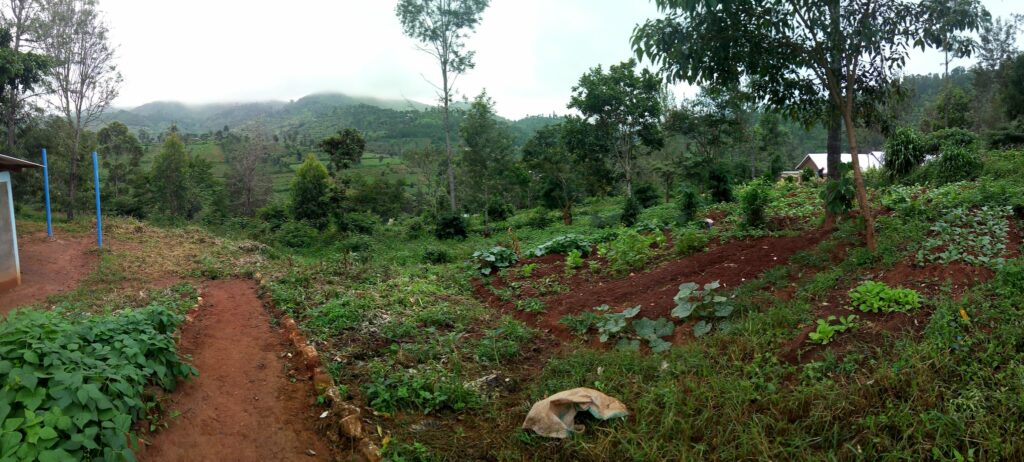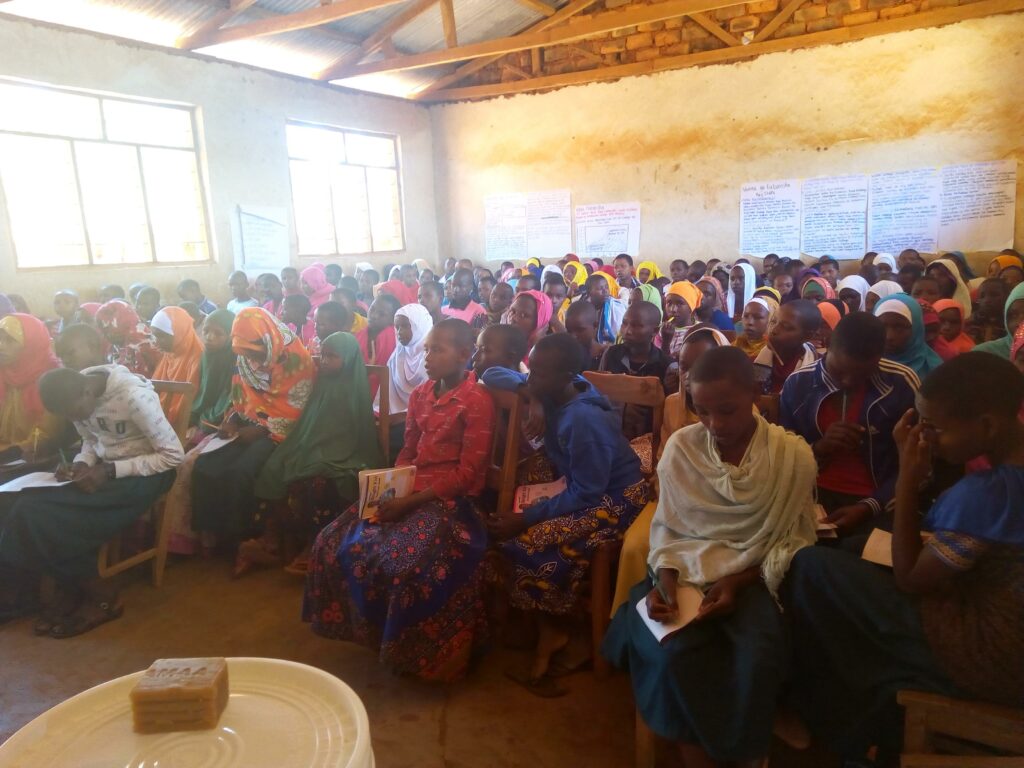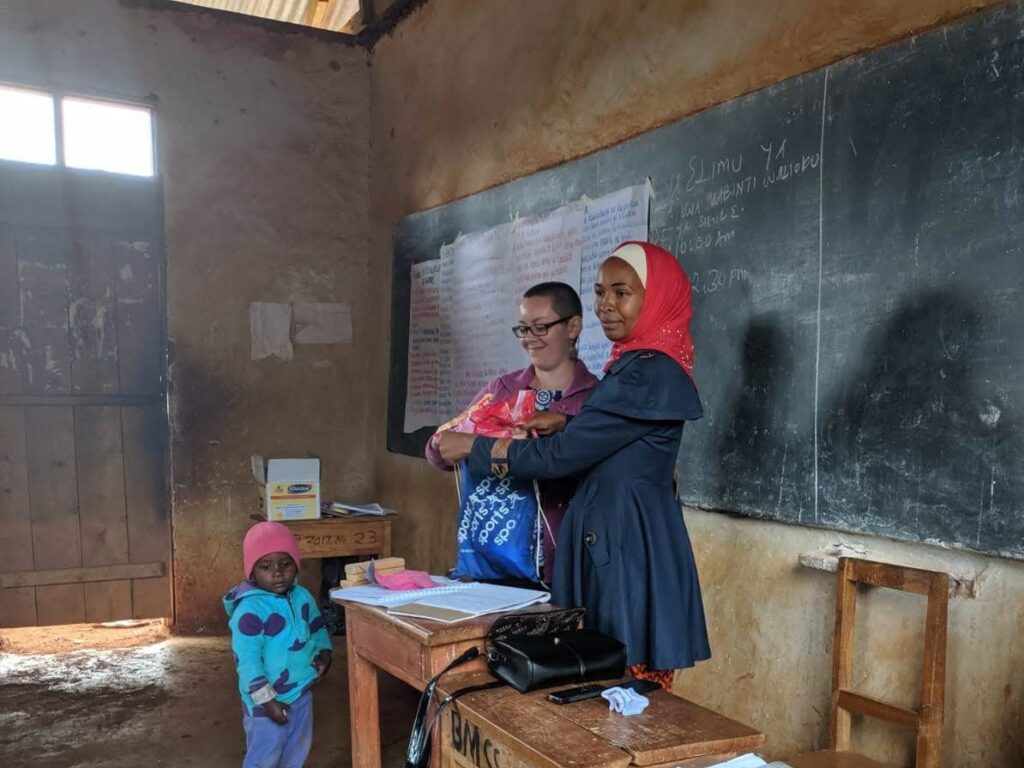
by Ashley Peiffer, M.S. student in Marine Resource Management

Upendo is the Swahili word for “love” and the name of one of my best friends in the Mshangai village of Tanzania where I lived as a Peace Corps volunteer from 2017-19. When I first arrived in Tanzania, I thought I knew what the village needed. It was only after getting to know my neighbors, like Upendo and her daughter, Rosie, that I realized my role as a volunteer was to drop all my preconceived notions and become part of the community first. Over the two years I spent in Mshangai, Upendo and Rosie taught me how much time and upendo it takes to build relationships and a sense of community. When I came back home to start my master’s degree at Oregon State University, I used those lessons, discovering that even without being physically present in a community, it’s still possible to maintain meaningful relationships with people across the globe.

One of the first moments I recognized that working in the village had nothing to do with imposing ideas of what “should” be and everything to do with building relationships was when Upendo started asking me to babysit Rosie. The simple gesture of asking me to fill a role that was normally taken by other women in the community brought me the humbling, heart-opening feeling of belonging. I found a deep sense of joy through the connections I made while taking on tasks such as babysitting, washing dishes with other women at local events, and chatting with village Bibi’s (“grandmas”) in an attempt to learn the three local dialects in my area that were often meshed with Swahili. Staying present in these day-to-day activities helped me to build meaningful relationships and listen to the concerns of my friends.


Without taking the time to get to know my neighbors, I would have never discovered that a major concern of the community was the amount of time girls and women missed out on their daily activities due to a lack of menstrual hygiene products. Nearing the end of my time as a volunteer, I found myself knee-deep in grant writing and event planning to host health seminars for hundreds of students and women in the community with my friend and fellow teacher, Rachel. We planned three seminars to teach about sexual and reproductive health and give away reusable menstrual pad kits from the HURU (“Freedom”) International program.

On the last day of the event, my friends from Mshangai and nearby villages came to receive their HURU kits, some walking over 5 miles one way just to reach the event. I was moved to tears by the community of women gathered with me. I held Rosie as Rachel gave the health lectures and all of the women, including my dear friend Upendo, took notes and asked questions. After the seminar, girls and women from the community paraded around the village with their colorful HURU kits, and Rachel saved the extras and all the education materials for incoming classes of students in future years.



The importance of community remains a focus of my life and a source of inspiration for my master’s thesis. Through the Marine Resource Management program and my advisor, Dr. Michael Harte, I was connected with the non-profit Secure Fisheries, a program of One Earth Future focused on empowering coastal communities in the Somali region to sustain and manage their fisheries resources and promote peace-building. Their work includes developing cooperative fisheries management in coastal communities, creating a system of region-wide catch data collection in partnership with universities and governments, and enhancing fisheries value chains to ensure communities derive as much value as possible from their fisheries resources. With staff located in both the Somali region and the United States, Secure Fisheries uses both community knowledge and scientific research to boost local capacity for fisheries management.

The COVID-19 pandemic brought my initial research plans– a gender and small-scale fisheries project in the Somali region–to a standstill. While in quarantine, I realized much of Secure Fisheries’ field work was significantly delayed because of the pandemic. Even so, staff members on both sides of the globe found creative ways to continue and even improve ongoing projects by switching to remote communication with communities and collecting GPS fisheries data. I was inspired by how the organization maintained strong relationships within communities, even with our new norm of social distancing. This inspiration led me to change my thesis research. I wanted to understand how Secure Fisheries and similar organizations adapted to extraordinary circumstances alongside the communities they work in, sustaining relationships with communities they could no longer visit in-person.
Living and working in Tanzania allowed me to learn first-hand how building trust and relationships can lead to great things. Through my research so far, I have seen how Secure Fisheries exemplifies those same values. Without community relationships and an appreciation for local knowledge, Secure Fisheries may not have been able to identify means of adapting their work to the pandemic, like seeking alternatives to data collection or communication.
As I wrap up my research, I find myself reflecting back to my days in Mshangai, remembering what it was like to hand HURU kits to my neighbors and friends, knowing that they were receiving sorely-needed supplies. I have found a sense of belonging here in Oregon with the Marine Resource Management program and with Secure Fisheries (through Zoom!), and I feel overwhelmed with gratitude for Upendo and Rosie, who opened up their homes and hearts to me and who patiently taught me what it means to build community.





It is so nice to get to know you Ashley. You are really good person, the one who is ready to lend a hand where needed . Thanks so much for helping my community, we as also Youth Peace Makers Tanzania we are looking for a way to help the community you left behind concerning the issue of Sexual Reproductive Health Rights. In addition as you know we are still facilitation Serving and Investments Groups (VICOBA) and Sports For the Developments teams. However, the big challenge is unavailability of resources. But we keep hope alive and one day we will succeed. Blessed are the Peace Makers for they shall be called children of God. My God bless you.
Thank you, Dickson! You’re doing some great things with Youth Peace Makers and I’m glad to know you and your impact in Lushoto and Tanzania!